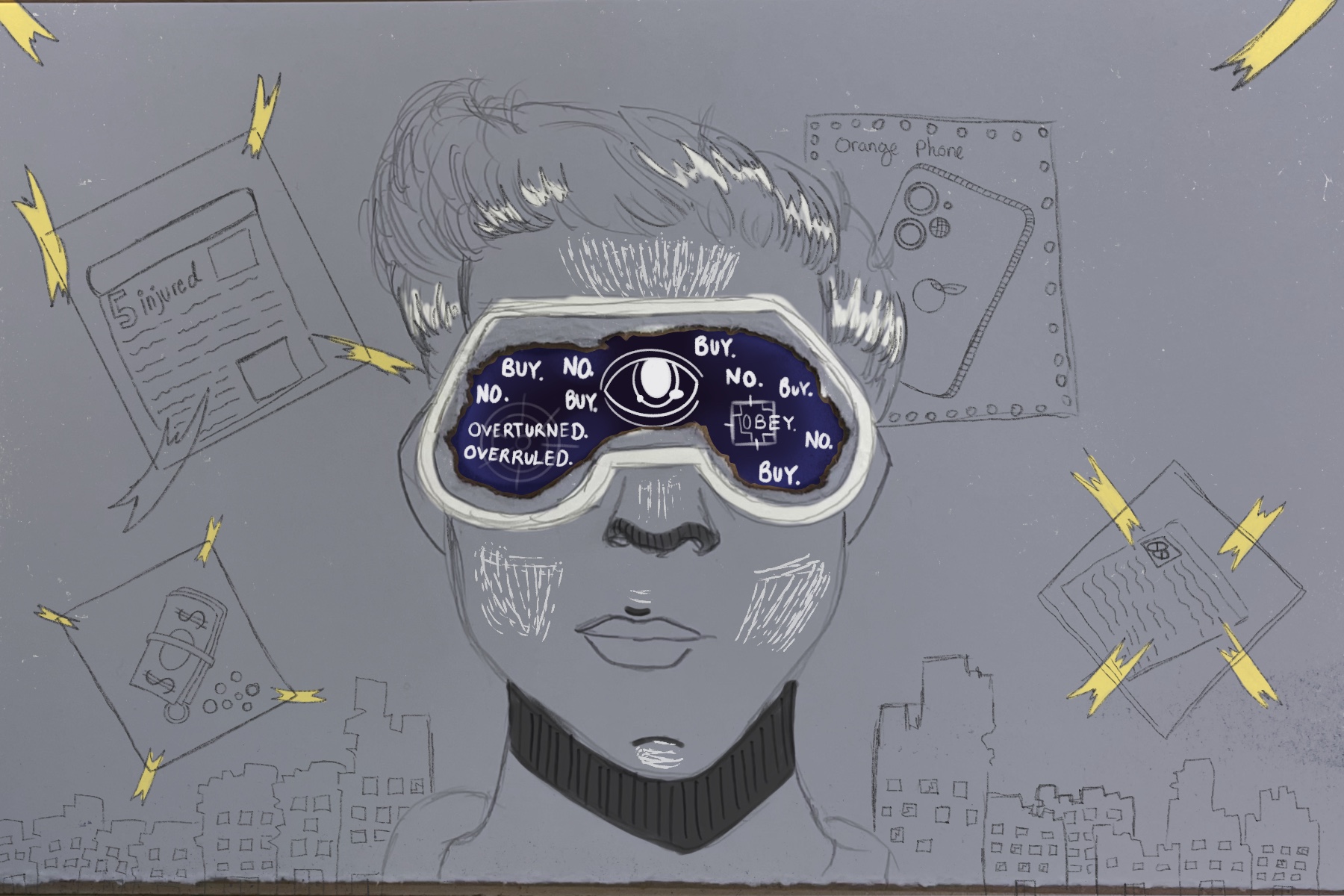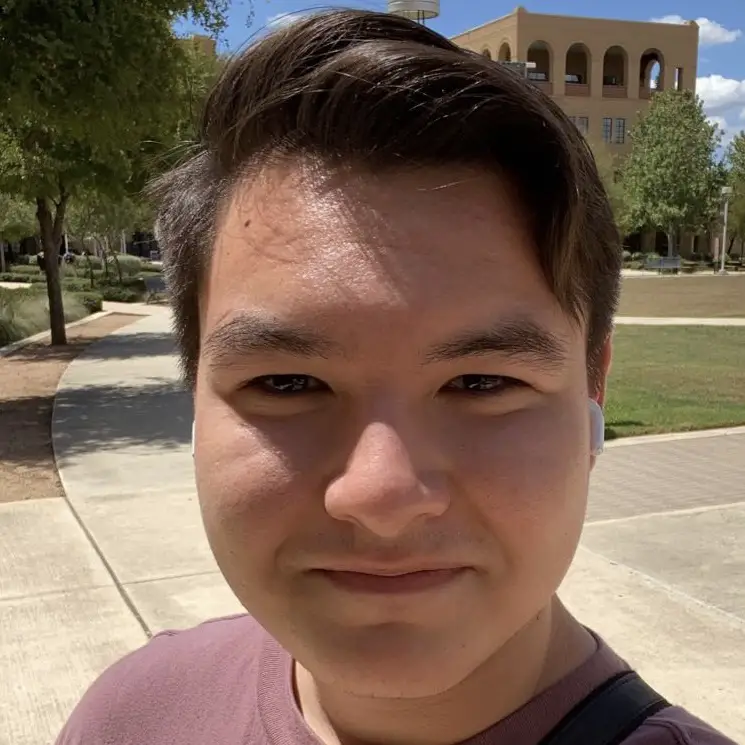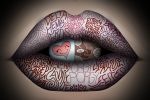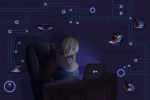Envision a world where even the slightest of motions are watched. Every word you read, every syllable you speak. Even your innermost thoughts are being carefully cataloged, researched, and predicted. A world where privacy is nonexistent and even your own thoughts are not safe. In other words, a modern-day dystopia.
This acts as the foundation that protagonist Winston Smith walks on in George Orwell’s novel “1984.” Winston happens to be caught in a fictional time of human history that is far from ideal. Truth is relative and thus lost, freedom of speech is quelled then euthanized, and an all-powerful government named Big Brother rules with an iron fist from atop their ivory tower. Yet the most terrifying part of his life comes from Big Brother’s ability to keep track of everything about him. So much so that one of the primary struggles of the novel is the escape of government surveillance to attain at least a small degree of freedom.
While this may seem extreme, it was intended as a warning of a phenomenon that could be seen as harmful to a free society. This phenomenon is surveillance culture.
.The idea of surveillance culture is not new. For centuries governments have used spies to control their population or specifically challenged ideologies in an attempt to consolidate power. Yet the issues that we now face stem from the major technological advancements within the last fifty years. While it had been impossible in the past to keep track of all the goings on of a population, recent inventions have changed this. With the advancements in many surveillance technologies, is it possible that we are heading towards a world like 1984.
One of the most alarming ways already pervades many households in America through the common Amazon Alexa.
In 2017, a double homicide enthralled New Hampshire’s attention. With bated breath, citizens heard of how two women who were brutally murdered, and how the assailant was justly put to trial. While elements of this case are not necessarily novel, it is the manner that the defendant received his verdict that makes the case scream for our attention.
“The court finds that there is probable cause to believe the server(s) maintained by Amazon. Com… contains evidence of crimes committed” wrote the Honorable Steven M Houran, the presiding judge for the murder trial. This statement was followed by a court-issued subpoena for Amazon.com to turn over their records that would be inspected by the courts. Eventually the court would use these records as specific evidence to find the defendant guilty.
While this may seem like a win for personal safety and speedy justice, it also strengthens a very dangerous precedent that could quickly spiral out of control. If the courts could order these records to be displayed and ultimately used against the defending party, could it not also be abused to target marginalized societies? Or could it possibly become a tool for rampant discrimination? This may seem like a one-off case, but recent advancements in technology have given us more than slight cause for concern.
As of 2020, there were over 46.5 million Amazon Alexa’s in use, making up 50% of all smart speakers in the US.
According to the US Bureau of Labor statistics, “surveillance camera installations are expected to grow from 70 million[…] to 85 million by 2021”.
Cybernews reports that an astonishing 86% of personal data is collected daily, with 68% of social media apps tracking their user’s data for their own marketing benefits.
Companies collect terabytes of our information every single day, focusing on our actions, speech, and personal preferences. The age of privacy is dead and gone, and with rampant commercialization, the problem is only spiraling further. How can we expect to have a free and true democracy if we live in a state of constant monitoring? The effects of a society like the one we live in are chilling, but we have not even begun to scratch the surface of the harm that this “trust but verified” mentality could cause.
Once again, open your mind’s eye and let your imagination wander. Picture yourself in a park, reading a devotional, or perhaps a politically charged pamphlet. You read it without shame, without anxiety, and without fear of your personal safety. Now imagine an almost invisible camera, zooming in on your reading, that has now identified and alerted the authorities of your whereabouts and your chosen reading material. You have just had a target placed on your back.
While this may seem like Orwellian fiction, this data collection and subsequent targeting is happening around the world today.
In light of the recent Israeli-Hamas conflict, the state of Israel has tracked down and subsequently jailed dozens of Arab citizens of Israel. Authorities have jailed these citizens on account of posting content during the war in Gaza. In New York, the NYPD have used Muslim prayer apps to track and collect data on Islamic communities, often marking those who expressed their faith as “radicalized.”
Amazon’s Ring doorbell has often partnered with local law enforcement agencies, allowing them to retrieve footage from these devices without a warrant. Google’s Nest doorbell has been shown to misuse facial recognition data which disproportionately leads to unlawful arrests of innocent citizens. This has happened specifically to those in ethnically marginalized societies. The fictional misuse of surveillance technology is no longer fictional.
In “1984,” Winston describes living in a society in which “every sound you made was overheard, and, except in darkness, every movement scrutinized.” When compared to the increasing rate of CCTV and voice retrieval systems we place in our own homes it does not seem that different. Orwell depicts a scene in which “a helicopter skimmed down between the roofs…the police patrol, [was] snooping into people’s windows.” While we may not see anything as blatant as this, the policing forces of the United States are gaining increased control over surveillance in major public spaces in their ability to discover our interior lives.Orwell comments on the surveillance instrument used in “1984” which he says “could be dimmed, but there was no way of shutting it off completely,” which is also remarkably similar to the data collecting information of our social media platforms and online browsing history. As well as the inability to turn data collection services off fully.
The line between the warning story and our own modern-day dystopia is beginning to blur to an increasingly dangerous point. Have we really stepped into “1984”?
“For the first time he perceived that if you want to keep a secret you must also hide it from yourself.” This line from the end of Orwell’s “1984” perfectly encapsulates the society that we seem to be heading towards. A society in which unbelievable amounts of information about us are collected at every moment of our lives, potentially leading to a place where not even thoughts are free.
Yet there is hope.
In a study published by Pew Research, 74% of Americans found that being in control of personal data is generally considered very important, and 90% of Americans valued being able to control the information collected. Around 59% of Americans clear cookies or browser history and 57% specifically choose to not give out irrelevant information about themselves online. Understandably these statistics are not awe-inspiring, but they do point to one very big distinction between Orwell’s world and ours: we recognize the problem and have the capabilities to fight back.
In “1984,” most of the populace did not even recognize that there was an issue and those that did were quickly “vaporized” or silenced. Yet we have not reached this point. While inhibited by big tech, we still maintain many freedoms that allow us to protest these issues and hopefully turn away from this dark road. With this, there is also new and increasingly refined legislation underway to protect both our privacy and our data. This should help ease the dangerous control big tech has over users.
Finally, there are many ways you can get involved in fighting this intellectual form of tyranny. This may be in the form of protests, writing letters to congressmen, or advocating for safer ways to fight back in our everyday lives.
Not all hope is lost and while we bear some striking similarities to the grim realities of “1984” so long as we continue our quest for equality and liberty, we shall not befall a fate like our poor redheaded character, Winston Smith.

















